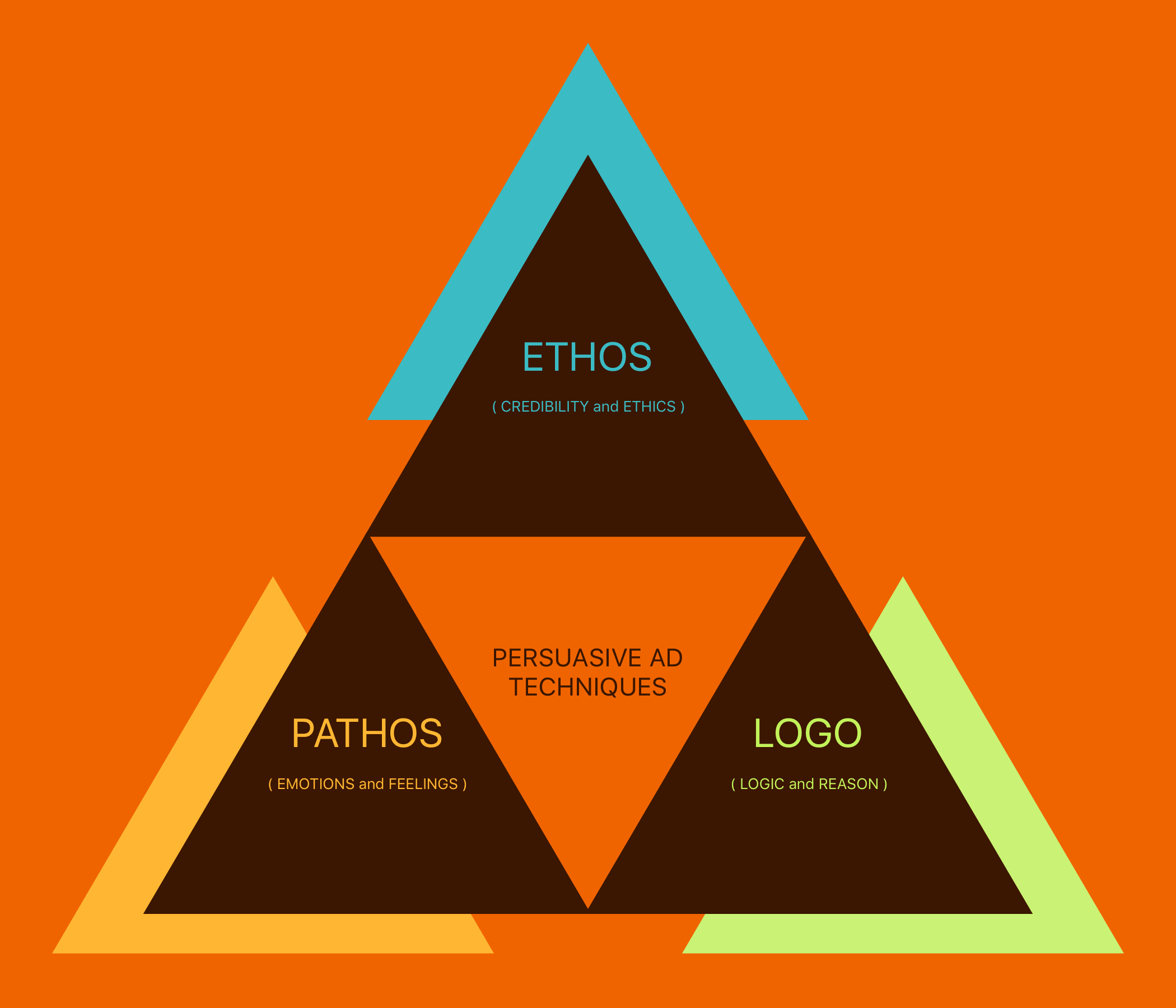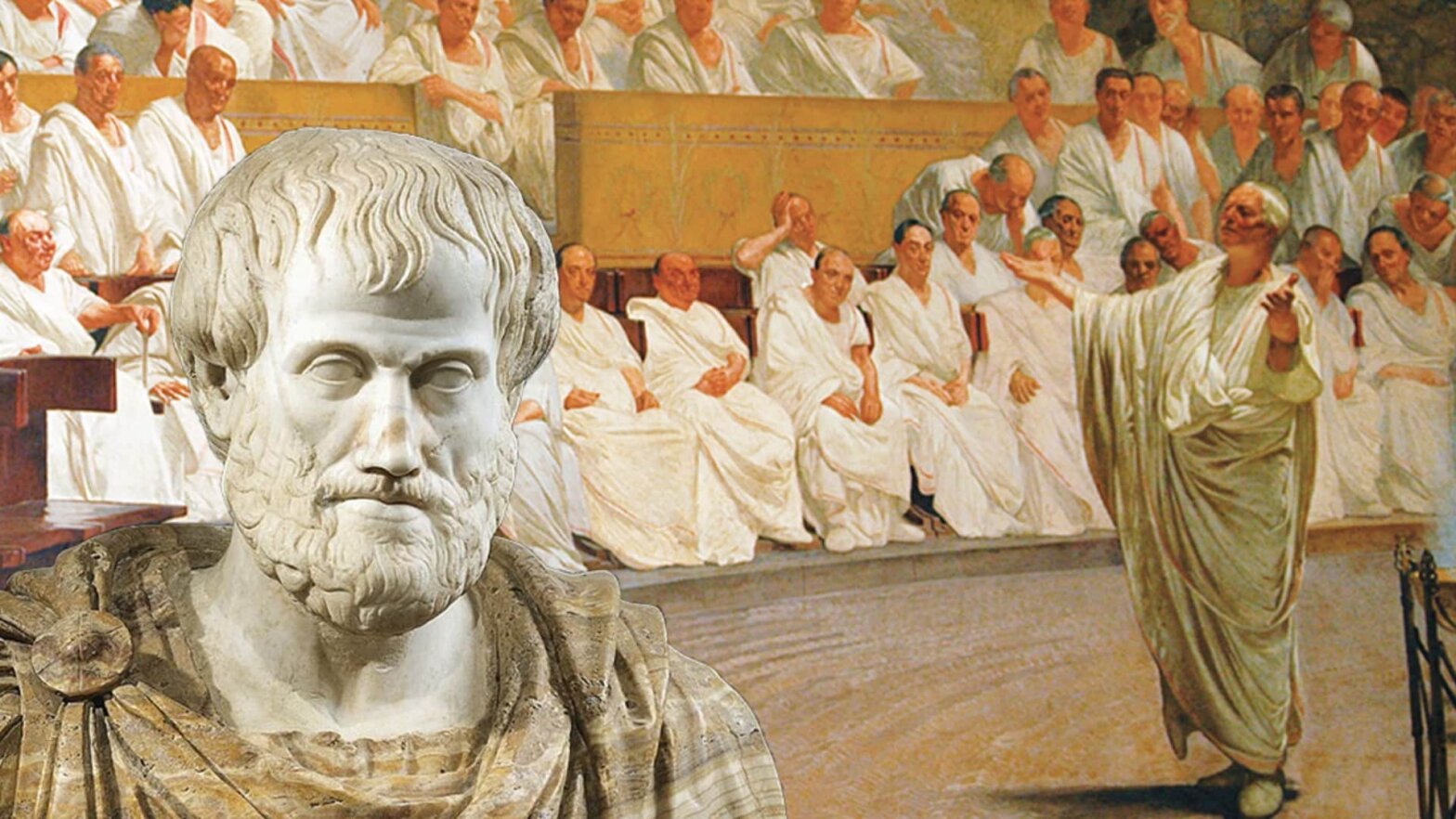You probably have heard of the terms ethos, pathos, and logos before. You may even understand what each is. However, you may not know them as rhetorical appeals. What are rhetorical appeals and how is each one a cornerstone of rhetoric? In this article, we’ll take a look at the components of the rhetorical appeals, how they are effective, and which one Aristotle thought was the most important in creating persuasive arguments.
Rhetorical Appeals Definition
First, let’s define rhetorical appeals
The rhetorical appeals are theories created by Aristotle around the 4th century BCE. They are a cornerstone of writing and rhetoric today. Learning about rhetorical appeals begins with taking a look at the rhetorical appeals definition
RHETORICAL APPEALS DEFINITION
What are the rhetorical appeals?
The rhetorical appeals (also called the Aristotelian triad or Aristotelian appeals) are three primary modes of argument written by the Greek philosopher Aristotle in his work Rhetoric. The three rhetorical appeals are ethos, logos, and pathos. The rhetorical appeals are often used as a means of persuasion in industries like advertising, law, politics, and general rhetoric.
What are rhetorical appeals used for?
- Ethos (Authority)
- Pathos (Emotion)
- Logos (Logic)
What are Rhetorical Appeals in Writing
Ethos
Ethos is a Greek term that translates to “moral character.” In rhetoric, ethos refers to a speaker's credibility and their good character. Establishing ethos as a speaker helps to build trust with those listening. Ethos is a common appeal that is used in advertising.
Celebrity figures or credible figures are often paid to endorse specific products.
A perfect example of this is the classic ‘Be Like Mike’ Gatorade campaign with basketball legend, Michael Jordan. Jordan’s ethos appealed to consumers and made Gatorade the drink of champions.
Ted-Ed explains abstract expressionism
Ethos is made up of three components that determine its effectiveness: intention, character, and expertise.
Intention
The appeal of ethos begins with a person’s sincere intentions for the well-being of who they are addressing. Their intention behind what they are saying, must have the general well-being of others in mind.
Character
Character refers to a speaker’s integrity and adherence to fundamental virtues. Knowing that a person, at their core, is of goodwill and moral virtue can often win over a listener.
Expertise
How credible and knowledgeable a person is about the relevant topic is known as their expertise. Establishing a general authority or intelligence on the topic allows your reader or listener to trust what you are saying. This is specifically effective when you have professional knowledge given your occupation or experience.
Related Posts
Rhetorical Appeals Meaning
Pathos
Pathos is an Aristotelian appeal that engages an audience’s emotions. The pathos rhetorical appeals definition is founded by an appeal to various emotions such as fear, duty, hope, humor, love, and patriotism.
Rhetoric that utilizes pathos is often descriptive, detailed, and filled with imagery that elicits emotion. Anecdotes, similes, metaphors, and allegories are common devices used to create passionate, pathos based arguments.
Pathos is a common technique used within law to gain sympathy and empathy from a jury. In this scene from the film Hacksaw Ridge, pathos is used to humanize the main character and his arguments.
Notice how descriptive and emotional the argument is and its effectiveness at creating empathy from others.
Hacksaw Ridge: Courtroom Scene
Pathos can be used in a variety of ways to appeal to the many types of human emotions. It is most commonly used to draw empathy for a subject, but can also elicit motivation to take specific action.
What are rhetorical appeals critiques? A notable critic of pathos was Greek philosopher Plato, Aristotle’s teacher. Plato thought that emotional appeal can be dangerous. He thought that it should be a means to an end and not the focus of a discussion.
What are Rhetorical Appeals in Writing
Logos
What does rhetorical appeals mean on the opposite end of the spectrum? From the passion and emotion of pathos is the logical logos. Logos appeals to logic and reasoning. Aristotle used the term “logos” to mean “reasoned discourse.”
He also thought that logos was paramount among all the rhetorical appeals. To Aristotle, the effectiveness of rhetoric highly depends on logic.

Aristotle's rhetorical triangle
Within tech advertising, logos is commonly used by stating statistics or numerical specifications of a product. This is common in direct response advertising like in this ad for the Fitbit Charge. Note how the ad focuses on specs rather than emotional appeal or the credibility of a speaker.
Introducing Fitbit Charge 2™ • Rhetorical appeals examples
Logos can also be looked at as the most difficult appeal to fake. Politicians, lawyers, and speakers alike can develop skills to appear like a credible person, a moral character, or a passionate speaker.
But logos depend on facts and statistics. This is why both Plato and Aristotle referred to logos as the most important rhetorical appeal.
Related Posts
UP NEXT
Persuasive Advertising Techniques
The rhetorical appeals of ethos, pathos, and logos are prevalent in various industries. It is perhaps most prevalent, however, in advertising. In our next article, we focus on how great advertisements use ethos, pathos, and logos to persuade consumers and sell products.
